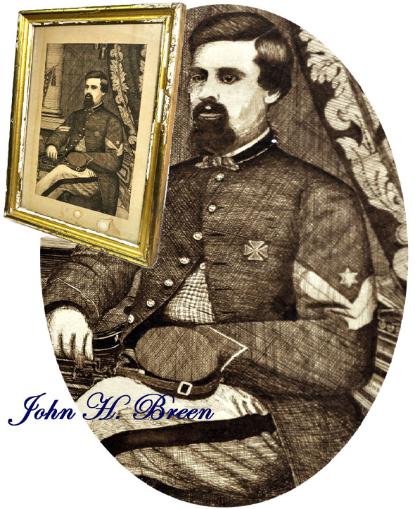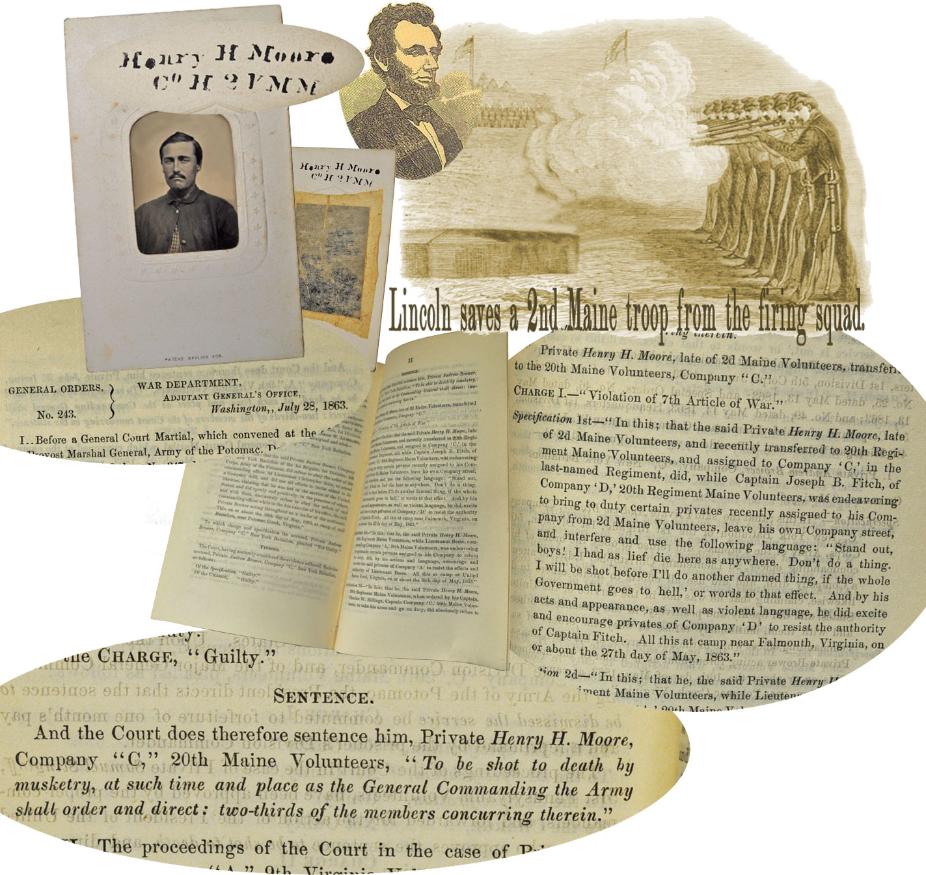

Shown here in a pen and ink rendering done while Cpl. John H Breen was recovering from wounds at the, Annapolis, Maryland, Army Hospital, Cpl. Breen was one of the 2nd Maine Volunteers transferred to the 20th Maine just before Gettysburg. Shown here after amputation of his left hand, more detail of Breen’s Civil War service may be found in one of our earlier presentations on page 15.

War Department General Order #243 records the Court Martial of several 2nd Maine Troopers who, expecting to be mustered out with their 2nd Regiment at the end of its term in June of 1863 but instead found themselves transferred to the 20th Maine Infantry where they were expected to complete their enlistment. Unlike the majority of 2nd Maine members who had enlisted for the term of the Regiment, the very unhappy fellows who found themselves instead transferred to the 20th, had entered service for a fixed period separate and apart from the term of the Regiment. While most and eventually all the effected troopers took up arms and served with Col. Joshua Chamberlain’s regiment there was a small number who initially refused. Their action was viewed as all out mutiny and Pvt. Henry Moore was the major instigator as he encouraged others of the old 2nd to join in the rebellious action. Henry was quickly made an example of as Court Martial proceedings were brought against the stubborn Bangor cooper, turned soldier, then mutineer. Considering action brought against the primary instigator all holdouts from the old 2nd Maine quickly accepted their 20th Regiment comrades as comrades in arms except Pvt. Henry H. Moore who was found guilty as charged and was sentenced to be shot to death by musketry. Moore’s sentence before an Army firing squad was commuted by President Abraham Lincoln to imprisonment at hard labor for the war’s duration. Henry Moore was finally persuaded to pick up arms with the 20th and was returned to that regiment in April 1864. He was wounded fighting with the 20th Maine at Bethesda Church on June 3, 1864 and was discharged at the end of his original enlistment of service Sept. 20 1864.







